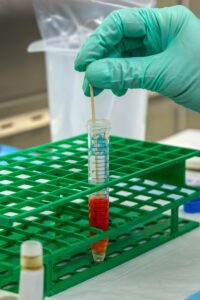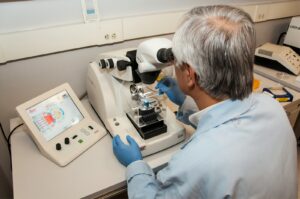The Impact of IoT-Enabled Devices on Clinical Research
IoT-enabled devices in clinical research are transforming the way data is collected, analyzed, and utilized, offering unprecedented levels of accuracy and reliability. In regions such as Saudi Arabia, the UAE, and key cities like Riyadh and Dubai, where healthcare innovation is highly prioritized, the integration of IoT technology into clinical research is paving the way for more efficient and effective studies. These devices are instrumental in capturing real-time data, ensuring that researchers have access to the most current and relevant information, which is crucial for the success of any clinical trial.
The use of IoT-enabled devices in clinical research allows for continuous monitoring of participants, providing a wealth of data that was previously unattainable. For example, wearable devices can track a patient’s vital signs, activity levels, and even medication adherence over extended periods. This real-time data collection not only enhances the quality of the data but also reduces the likelihood of errors that can occur with manual data entry. In turn, this leads to more reliable outcomes and accelerates the research process, enabling faster development of new treatments and therapies.
Moreover, IoT technology facilitates remote monitoring, which is particularly beneficial in the context of clinical research conducted in diverse and geographically dispersed regions like the Middle East. Patients no longer need to be physically present at a research facility for every data collection point. Instead, IoT devices can transmit data directly to researchers, ensuring that the study can continue without interruption, even in remote or underserved areas. This capability is crucial in large-scale clinical trials, where participant retention and data consistency are paramount.
Improving Data Quality and Reliability with IoT Technology
The integration of IoT-enabled devices in clinical research significantly enhances the quality and reliability of the data collected. In the dynamic healthcare environments of Saudi Arabia and the UAE, where precision and accuracy are critical, IoT devices provide a robust solution for ensuring that the data used in clinical studies is both comprehensive and dependable. By automating data collection, IoT technology minimizes human error and reduces the potential for data manipulation, thereby ensuring that the information gathered is a true reflection of the participant’s health status.
For instance, in a clinical trial for a new cardiovascular drug, IoT-enabled devices such as smartwatches and implantable sensors can continuously monitor a participant’s heart rate, blood pressure, and other vital signs. This constant flow of data allows researchers to detect even the slightest changes in the participant’s condition, providing insights that would be impossible to obtain through traditional data collection methods. The ability to gather high-quality, reliable data in real time enhances the validity of the research findings and supports the development of more effective treatments.
Furthermore, the use of IoT technology in clinical research supports the standardization of data across multiple study sites. In international studies, where participants may be located in different countries, including those in the Middle East, IoT devices ensure that data is collected consistently and uniformly, regardless of location. This standardization is essential for comparing results across different populations and ensuring that the study outcomes are applicable on a global scale. The reliability of the data collected through IoT devices also makes it easier to meet regulatory requirements, as the data can be audited and verified with greater accuracy.
Conclusion
In conclusion, IoT-enabled devices in clinical research are revolutionizing the way studies are conducted by enhancing the quality and reliability of data collection. In regions like Saudi Arabia, the UAE, Riyadh, and Dubai, where healthcare excellence is a top priority, the adoption of IoT technology is driving significant advancements in clinical research. By providing real-time, accurate data, IoT devices are not only improving the efficiency of clinical trials but also ensuring that the results are reliable and applicable on a global scale. As the use of IoT in healthcare continues to grow, its impact on clinical research is expected to lead to the development of more effective treatments and therapies, ultimately benefiting patients around the world.
—
#IoT #ClinicalResearch #DataQuality #DataReliability #IoTDevices #HealthcareInnovation #SaudiArabia #UAE #Riyadh #Dubai













